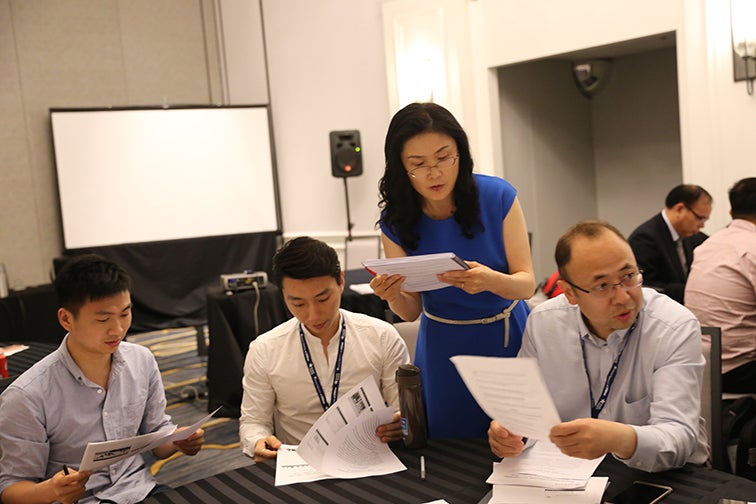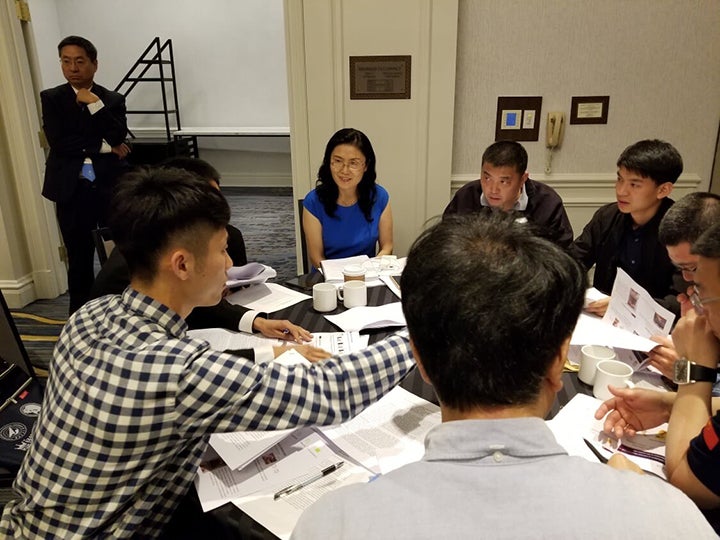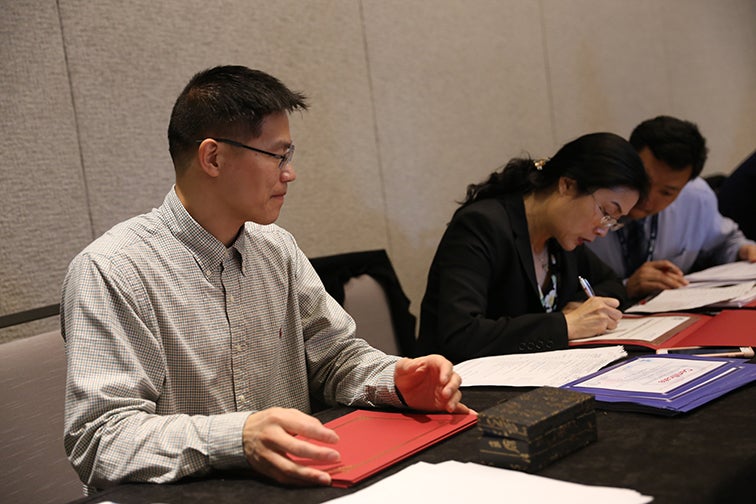
Yong Gao is a professor in the Department of Kinesiology within Boise State’s School of Allied Health Sciences.
What she wasn’t, until May, was a publisher.
But with the backing of the college and supportive colleagues in Boise State’s Albertsons Library, Gao’s International Journal of Physical Activity and Health has become real, filling a niche for dozens of academics and professionals around the globe who are invested in China’s physical education, physical activity and health specialty areas.
While she has reviewed and worked on multiple articles for publication, it was not until the International Chinese Society for Physical Activities and Health came calling that she jumped into the world of publishing – from scratch.
Gao has been a member of the society, composed of hundreds of scholars and professionals in multiple countries, for many years and served as president of the organization. As her term for 2018-19 wound down, she was asked to chair a task force charged with studying the feasibility of a new publication dedicated to the work and thinking of society members.
“We saw the need among the international community for scholarly communication and collaboration, and we organized several conferences on related topics. There is a need. We need this journal,” she said, recalling the discussions among society members and leaders.
A long hard road – with new lessons to learn
“It has been a long, long way, actually, I have to say. We were doing it during the pandemic.”
But Gao knew nothing about the work entailed to start a communications platform – copyright law, establishing a review board, setting a style and brand look and feel, preparing documentation, learning how to work with authors, deadlines, content length, visuals, all of it – from the ground up.
“In terms of how to publish, I don’t know,” she said. “I have no idea. It’s painful, I have to say that.”
She wrote proposals to various publishers, to see whether their missions aligned with the society’s needs, but for one reason or another, a fit could not be found.

“It didn’t work out,” Gao recalled.
Next stop?
Albertsons Library, where the atmosphere was much more welcoming.
“Our library is so wonderful,” she said. “They said, ‘Yes, we can help.’
“Very, very, very helpful.”
Very, very helpful in particular were Elisabeth Shook, an assistant professor who heads up scholarly communications and data management, and Kim Holling, institutional repository manager in the same area. Among their many contributions, the two helped with documentation and registering the journal with the Library of Congress, scoured for copyediting support, connected Gao with the team behind the publishing platform, conducted quality checks and ensured that digital object identifiers were in place in case platforms and links change over time.
Gao’s journal is one of several that the library staff works on and that are produced through university-owned software and a university-owned electronic platform; BOGA: Basque Studies Consortium Journal is perhaps the best known. The journals are an eclectic collection of offerings from students and faculty members, not unheard of, but fairly unusual. They are also fun – and can make a difference, Holling said, noting that timely information flow has turned out to be pivotal in recent years.
“I really like what we’re doing with the repository,” she said. “It is open globally and we’re making sure that it is accessible to the community, to the state … It’s a nice feeling. We’ve seen how that sharing of information impacts things with the COVID pandemic.”
“This is going back to my roots,” said Shook, who joined Boise State from Vanderbilt University early in 2020. “It reminds me of why I do these things.”
Becoming a reality
Support for the new publication also has come from further afield. Gao has tapped colleagues across the world to serve on an editorial board and as editors. She credits the school, the college and Dean Tim Dunnagan for boosting the effort.
“Without the support from our department, our dean, I cannot do it,” she said. “It’s not just me here. It’s many parties.”
The journal, published online in English, launched in May and featured articles on everything from motivation to gender-specific marketing strategies and the use of wearable trackers by cancer survivors. The aim is to keep society members current with respect to the scholarship developing in the field, and serves as a forum for international collaboration and a connecting glue for activity centered on and around China, where there is a great appetite in what others are doing in terms of education, physical activity and health, and how physical education is conducted.

The publication, which launched with 10 articles, is open access, and Gao has plenty of material undergoing review now for the second edition, targeted for October; ultimately, she would like to publish on an ongoing basis, so that readers can be reached in a timely fashion with the latest news and developments.
“Our goal is to go to the impact factor, so that we can have a very productive and successful journal,” she said. “I think we actually can do it.”
Early reviews have been favorable, Gao said.
“People are so happy about it,” she said. “People wanted to submit. We have more submissions, because they want to publish.
“We’re all volunteers, trying to run an academic journal, on our own time,” she said. “When we saw the first issue published, I was just so happy about it … We started from scratch, but when we saw the product, it was like, Wow. It’s needed. It’s meaningful. People like it. People want it.”
Check the journal out at: International Journal of Physical Activity and Health